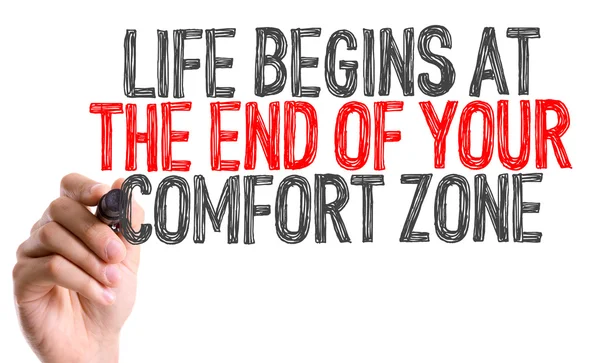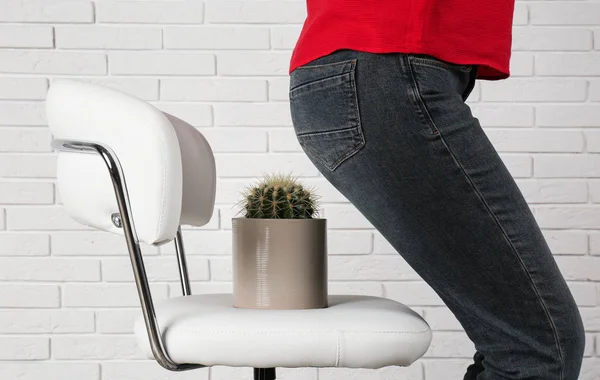Before you ask me the question: What is the itchy chair syndrome? I will ask you a question to answer your question: Where would you be working more comfortably rather than be more productive – Sitting on your office chair or in the lush green lawns of a resort cosying in a comfortable chair and sipping hot coffee?

Your answer would be: It would depend on which place you find more comfortable – right? Here I would like to correct you – where you would be slightly uncomfortable, you will be more productive. You will feel that enjoying the morning sun amidst greenery and flowers will be more productive. Maybe but in most cases, it would not be.
You will be far more productive in your office environment on your slightly itchy office chair. The lawns are great though but between the distracting conversation of friends and the lazy rays of the sun, it is not a work-finishing environment.
While seated on an itchy chair, you are slightly uncomfortable. The discomfort would probably give you motivation to get up and do something. These are the soft, leather recliners that make you want to sleep.
Probably, this principle is true of a lot of things: when everything is going perfectly, fewer things get done. Chris Guillebeau of The Art of Nonconformity had a great entry recently on how uncertainty motivates him. We would generalize his theory to say that the low periods in your life are often your most productive.
When job loss happened during COVID-19, I worked hard to keep my life on track by being more productive, working longer hours, and remaining seated till the work for the day got over. During the day, I was quite uncomfortable but that made me quite productive. I worked dedicatedly to finish work on my book, connected with potential clients, honed my soft skills, and put in place my website besides doing content for innumerable websites. Thus, making my discomfiture quite productive. This way we see that discomfort gives you a bigger zeal to accomplish your goals. Despite parking myself on a leather recliner, and brooding over the charm (lost now) of a corporate job, I started from scratch. Here, being uncomfortable in my situation, helped me a great deal. Then, I was not aware of the course life would take.

For this, you need to step out of your comfort zone. What is your “comfort zone” which you need to identify as a first step? Here you can involve friends or family or even a professional so that your path is easier.
“Be willing to step outside your comfort zone occasionally; take the risks in life that seem worth taking.
What is the comfort zone?
A comfort zone can be defined as a psychological state in which things from the environment are close and familiar to a person and under their control, enabling low levels of stress and anxiety. Another definition defines the comfort zone as a state in which a person functions without anxiety.
“The sooner you step away from your comfort zone you’ll realize that it really wasn’t all that comfortable.” — Eddie Harris, Jr.
What are the three comfort zones?
The Comfort Zone: where what you do is routine and familiar. The Learning Zone (or Growth Zone): where you experiment, develop skills, and stretch your abilities. The Panic Zone: where you are tasked with learning something that is well beyond your knowledge, causing you to feel overwhelmed and panicked.
Is it OK to stay in your comfort zone?
Staying in your comfort zone removes that extraordinary potential from you. In conclusion, go outside the barrier you have placed upon yourself. Just on the other side fear and doubt could be everything you have ever wanted to do and achieve.
“Unless you go out of your comfort zone. Unless you challenge yourself, you cannot grow. Leadership is the art of growing by pushing yourself past your own physical, mental, emotional, and spiritual limits.” – Amit Ray

I am not saying that discomfort is the sole motivator, but it is one of the motivating factors in life. An itchy chair is not the only way to motivate yourself. You can be motivated by a feeling of purpose or a creative passion. People are not trapped in choosing between unmotivated pleasantness and motivated discomfort. You can be happy and ambitious at the same time.
The point I am bringing forth is that if you find yourself sitting in an uncomfortable position, why not make a productive use of the situation? Instead of viewing the dip in your life as a weakness, make it a point of strength.
Likewise, if you are uncomfortable in your relationship, turn it into an opportunity and show the world your mettle. It has been found that you improve yourself when you are outside a relationship than in one. While this is far from a universal truth, being alone can spur you to make changes you otherwise would not. The lack of comfort and security gives you nothing to relax against, and you can push yourself forward.
Of course, some people find the opposite true: when they are in a relationship, they can focus more. You need to twist what you have got to make it work for you. If you are alone, use the extra time and freedom to push yourself forward. If you are together, use the extra emotional support to focus. The same applies whether you are poor or rich, unhealthy, or fit, busy or have unlimited time.

I am not saying you should avoid doing things that will make you comfortable or happy. That will probably result in even less motivation. But you should recognize what part of the wave you are in, and learn how to ride it. If you are in a position of recession, use that to drive you.
This is the only way to be HappyHO!
